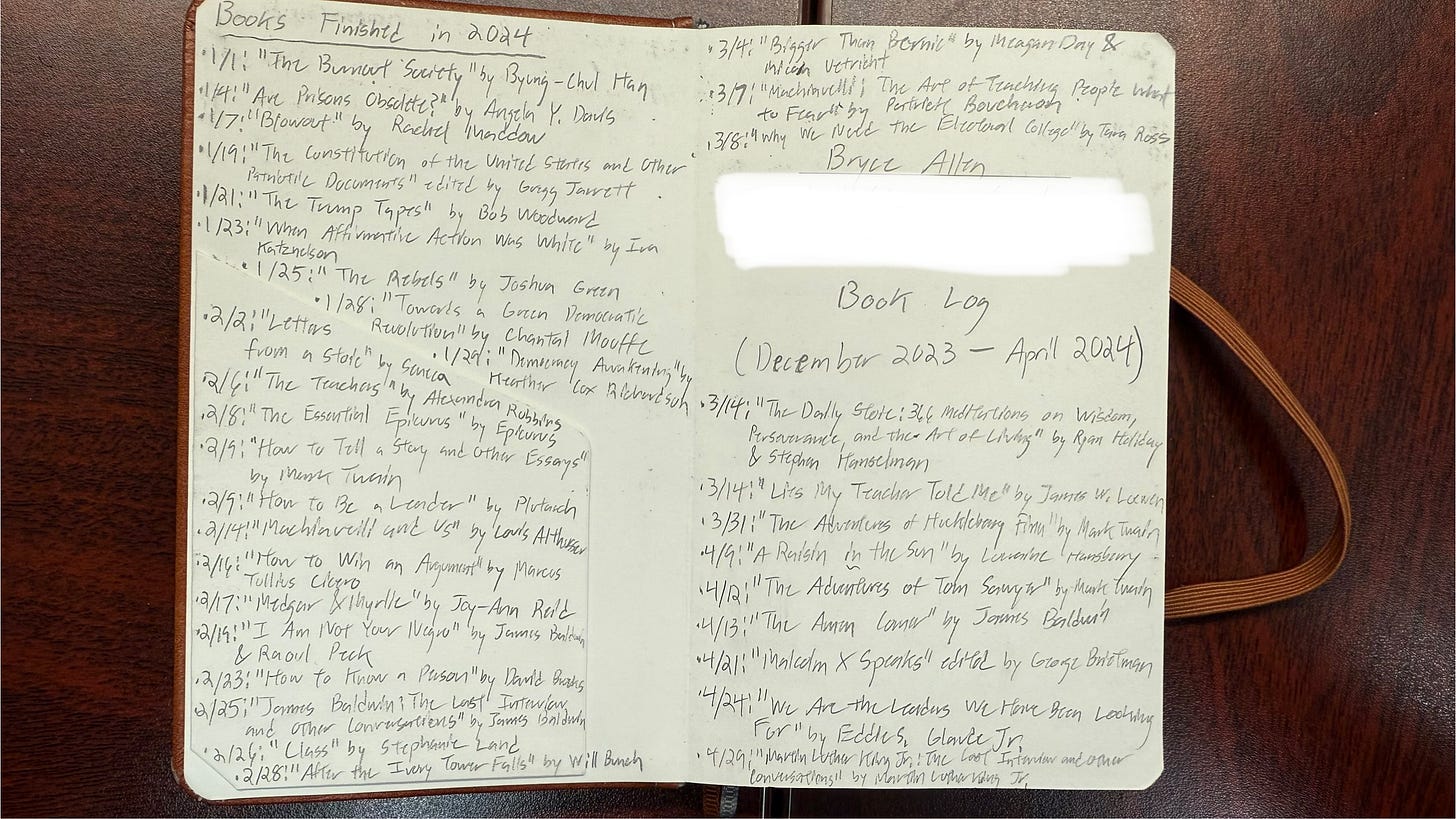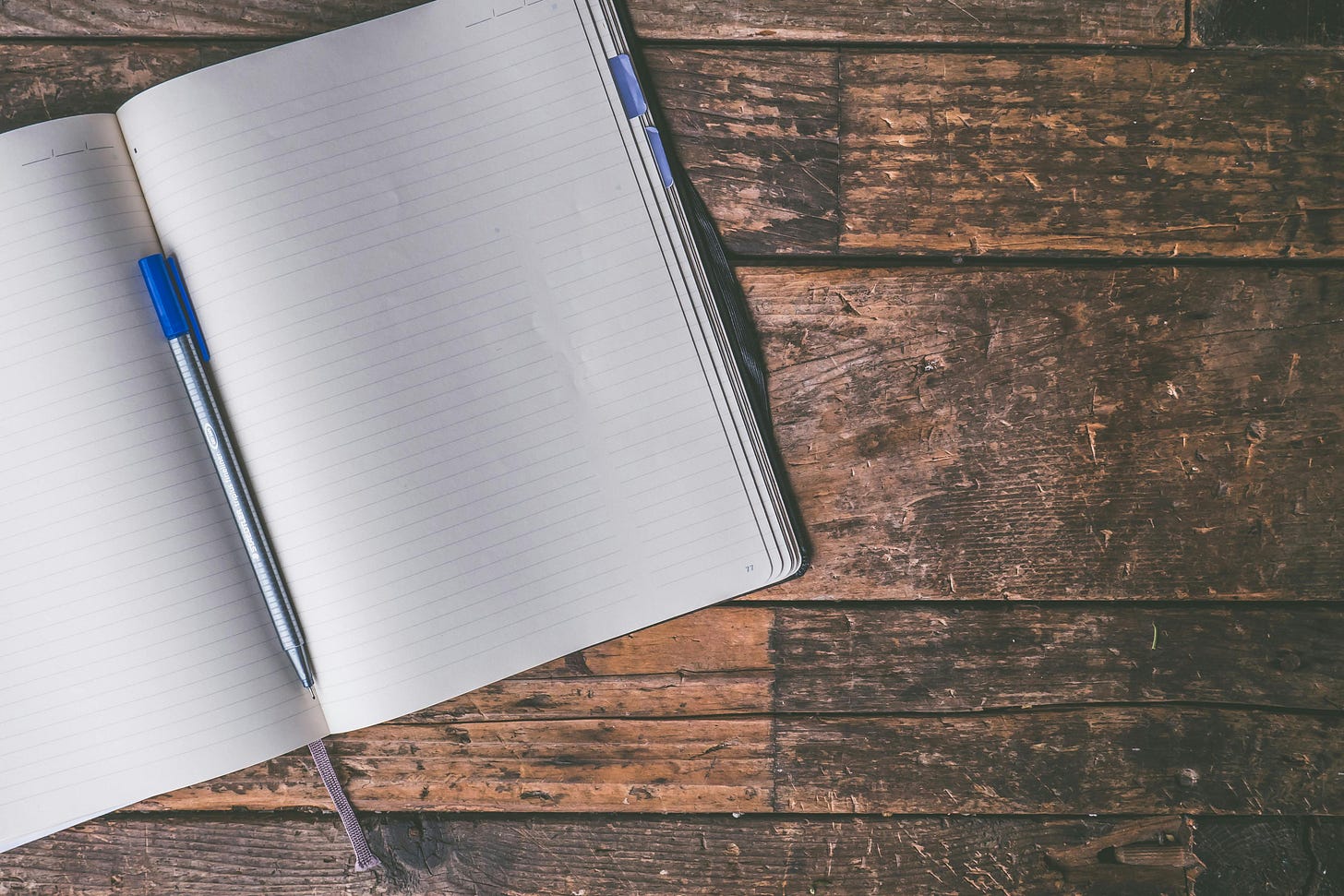Some Brief Thoughts on Keeping Reading Journals
How I Track What I Read and How It Could Help You
Recently, Jared Henderson wrote on his Substack about keeping a reading journal. The purpose of this journal is to record all of the books he reads and to provide commentary on each one.
In this article, Jared mentions a few rules that he plans to use for all of his reading journals going forward.
“I should include books I chose not to finish for [a] good reason. There are many books I can say that I’ve read in large part, even if I decided some section was not worth my time while reading. The art of being selective in what you read needs to be cultivated. And, since this notebook is not shared with anyone, this isn’t a matter of ego; it’s my intellectual chronicle, and those unfinished books are part of that tale.
I should make those books in some way so that I can recall if I read the book in whole or in part.
I should write 1-3 sentence reviews of the books to collect my immediate thoughts.”1
Jared lists a few of these rules to address some of the issues he’s encountered with previous reading journals. Two of the problems, he cites, are how to count books you only read part of, or how to handle collected volumes that contain multiple books in them.
To answer the first question, Jared says that for him to count a book as “read,” he
“must read the main contents of the book in order to include it. Introductions, prefaces, postscripts, appendices, interpretive essays, and the like are not mandatory.”2
This is a reasonable definition. In some cases, the front and back matter of a book can take up more of its page length than the main body of the text itself. In the Penguin Classic edition of Aristotle’s Poetics, for example, the front and back matter take up half of the book’s length. I’ve come across introductions to novels that offer a critical analysis of the book’s entire plot, potentially spoiling the experience of first-time readers, if they’re caught unaware. Sometimes it’s better to just read the main text and move on.
On the end pages of my book logs, I document the books that I have finished and the date that I finished them.

I started to do this because, while I can remember what books I have finished, it is difficult at times to remember when I read a book. I like to see the progression of where my reading interests have taken me over time.
If I were to improve this listing format, I would also attempt to include the dates I started each book as well. One aid in providing that extra information would be the log pages themselves.
Each page of my book log is formatted with the date/day of the week in the top header, with each book listed in a bullet point list. Within each bullet is an indicator of how many pages I read in a given session, with each session separated by commas.
It is with these logs that I am capable of producing a record of when I started and finished a particular book. Obviously, marking the finish date is the easy part. The more tedious part would be flipping through the pages of my book logs to find the first day that I started a book. Given that I jump between books a lot, this could result in me flipping through multiple book logs to find the records that I need.
When it comes to collections of multiple books, Jared says that an individual book “is not simply pages bound together. It is something a reasonable person would refer to when they said ‘I read that.’“3
This is admittedly a rule I should also follow to a greater extent. I am currently reading the collected works in Amiri Baraka’s Reader. This book contains a selection of his essays, poems, and the complete scripts of a few plays. Since I recently finished Dutchman, a play that has been printed in its own separate volume, I could easily document that in my book log/journal as a work that I have read, despite not having finished the entire reader.
This is not a rule I currently follow with my own book logs. But as a frequent reader of collected works, documenting the individual works within a book that I have read to completion would provide a clearer picture of what I’ve read in a given year.
As far as specific notebook recommendations go, I currently use LEUCHTTURM1917’s pocket-sized notebooks. I’ve used a number of notebook brands over the years for my book logs, but I’ve opted for LEUCHTTURM1917 for the numbered pages, table of contents, two bookmark ribbons, and inside pockets. However, they are a bit pricier than the previous brands I’ve used, and I would prefer to have a cost-efficient means of buying them in bulk since I tend to order these online.
Over the years, I’ve made a more active effort to chronicle my time spent reading books. Because I have access to books wherever I go—thanks to apps like Kindle, Libby, and Libro.fm—I often carry my book log with me in my pocket to make sure I always document where I’m at with my library. My book logs, as a result, are the source of some of my most frequent writing in any given week.
If I ever opt for a larger notebook size than I currently use, I might consider following Jared’s practice of writing brief reviews of the books I’ve finished. At the moment, such comments get written either in my daily notes in Notion or in my library database entry for the book (also in Notion).
I’m curious to hear what you all think. Do you keep your own reading log/journal? Will you try some of the practices mentioned here? I look forward to hearing what you have to say in the comments below.
And please, if you like content like this, also check out Jared’s Substack, Commonplace Philosophy.
Happy reading!
Socials:
Substack: whatsonmymind.net
Twitter: twitter.com/bryceallenreads
Threads: threads.net/@bryceallenreads
Glasp: glasp.co/#/bryceallen
For more articles on reading, writing, and the creative process, subscribe to my free Substack newsletter!
You can support my writing by buying me a coffee!
You can also show support by purchasing from the affiliate links in this article.
Sources:
Henderson, Jared. “Tell Me about Your Reading Journals.” Commonplace Philosophy (blog), April 5, 2025. https://jaredhenderson.substack.com/p/reading-journals.
Henderson, “Tell Me about Your Reading Journals.”
Ibid.
Ibid.



